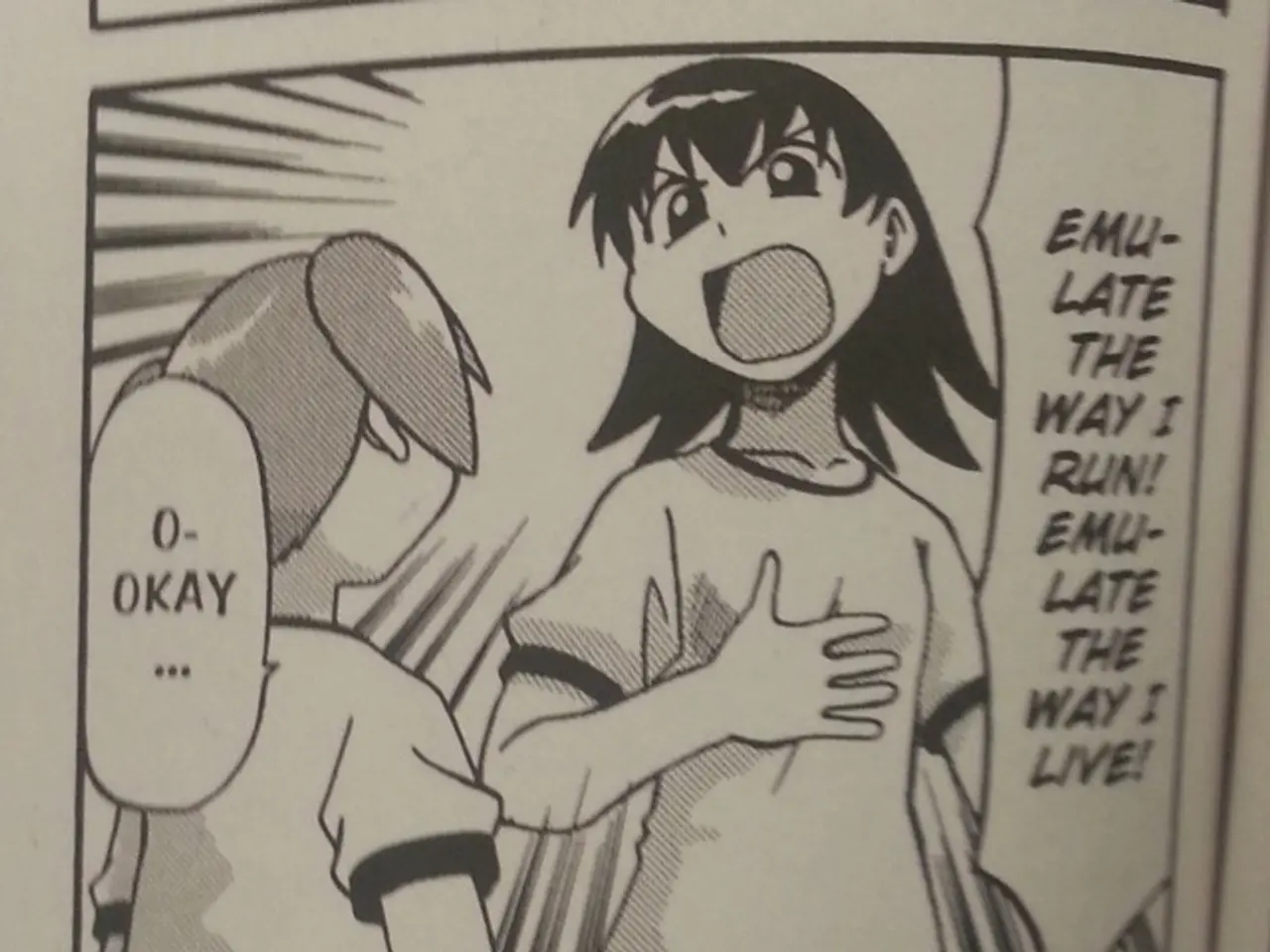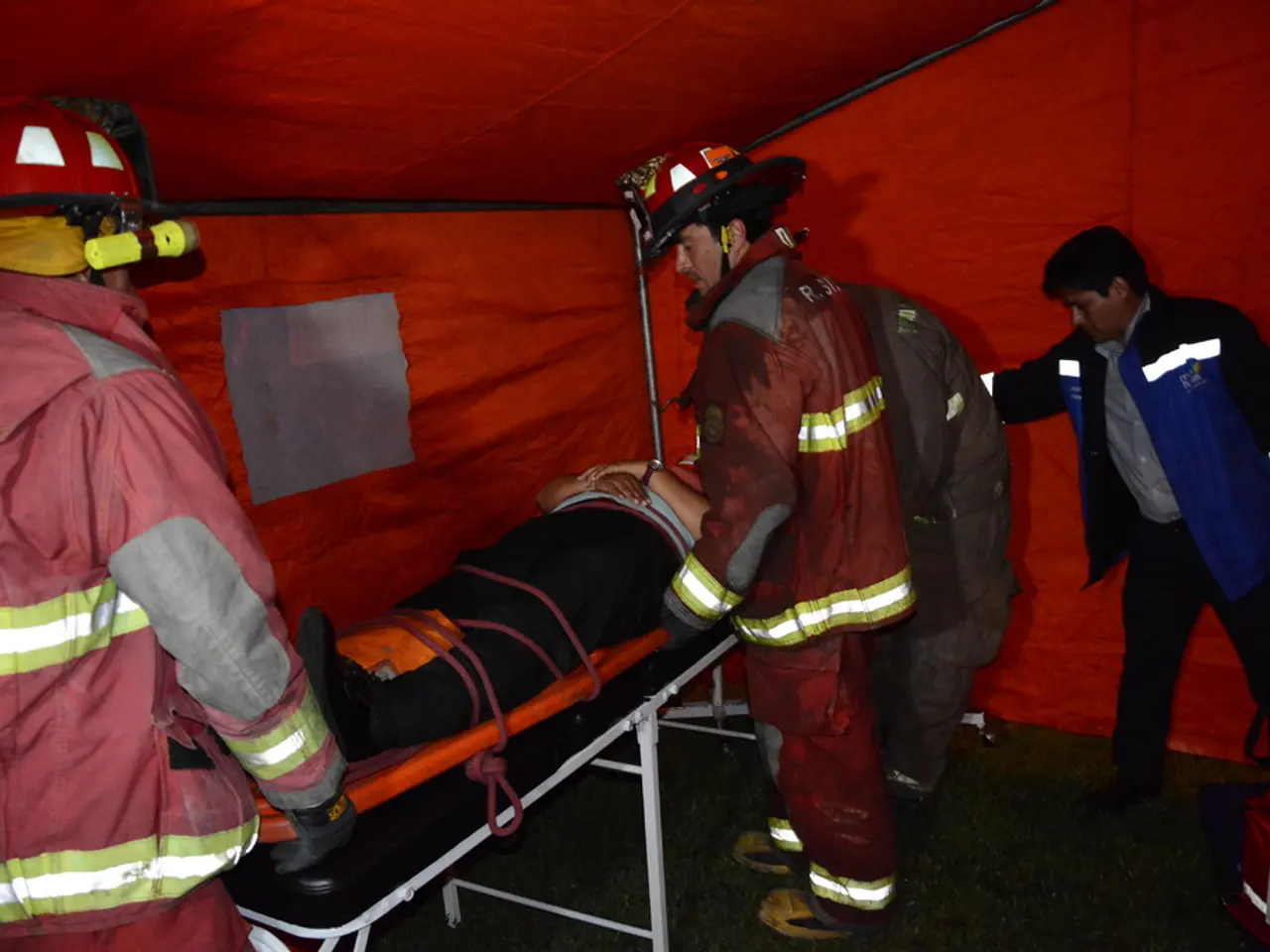Trump confirmed to have chronic venous insufficiency, according to White House statement.
U.S. President Donald Trump has been diagnosed with a common vein condition called chronic venous insufficiency (CVI). This condition, according to the National Library of Health's MedlinePlus website, is a condition in which the veins have problems sending blood from the legs back to the heart.
Dr. Leavitt, Trump's doctor, confirmed the diagnosis through an ultrasound of Trump's legs. No signs of heart failure, renal impairment, or systemic illness were found during additional exams. There is also no evidence of more serious conditions such as deep vein thrombosis or arterial disease in Trump's case.
The diagnosis and treatment of Trump's condition will not interfere with his official duties as U.S. President.
For individuals over 70 with CVI, long-term management focuses on symptom alleviation, prevention of complications, and lifestyle adjustments. Here are some key management options:
1. **Compression Therapy** - Compression socks (20-30 mmHg medical-grade) and compression bandages or stockings are commonly used to push blood back up to the heart.
2. **Lifestyle Changes** - Regular exercise, weight management, maintaining good posture, and avoiding prolonged standing or sitting can help manage CVI symptoms effectively.
3. **Medical Monitoring** - Regular check-ups with a healthcare provider are necessary to monitor symptoms and adjust treatments as needed. Screenings for related conditions such as cardiovascular disease, kidney issues, or blood disorders should also be performed to address potential complications early.
4. **Wound Care (If Applicable)** - For those who develop venous ulcers, proper wound care, including debridement, dressing changes, and antibiotics if infection is present, is crucial.
5. **Medications and Interventions** - Pain management medications and, in severe cases, surgical interventions may be considered to repair damaged veins.
6. **Education and Support** - Patients should be educated on the importance of adherence to treatment plans and the potential complications of untreated CVI. Support groups can help manage the psychological impact of chronic conditions.
Chronic venous insufficiency is a common condition in individuals over the age of 70 and, while it can be managed, it tends to get worse over time if left untreated. However, with proper management and care, individuals can reduce symptoms and prevent complications. Regular medical supervision is essential to adjust management plans as needed.
Science and health professionals advise that individuals managing chronic venous insufficiency (CVI), like Donald Trump, should focus on symptom alleviation, prevention of complications, and lifestyle adjustments. This includes compression therapy with medical-grade compression socks, regular exercise, weight management, maintaining good posture, and avoiding prolonged sitting or standing. Additionally, medical monitoring, wound care, and medications may be necessary in certain cases, while education and support can help manage the psychological impact of living with chronic conditions.




